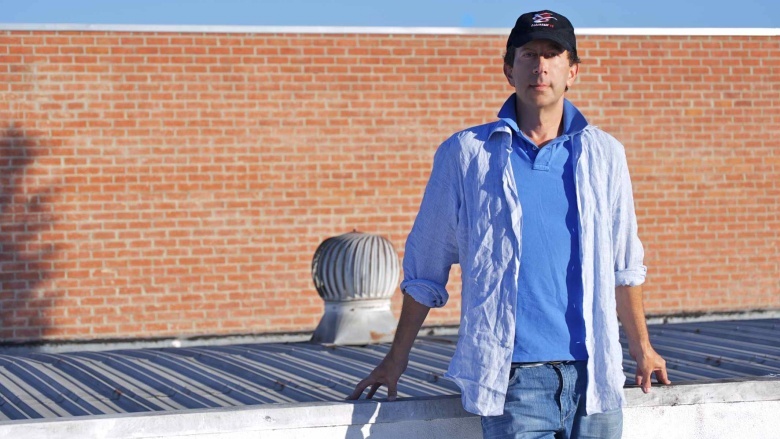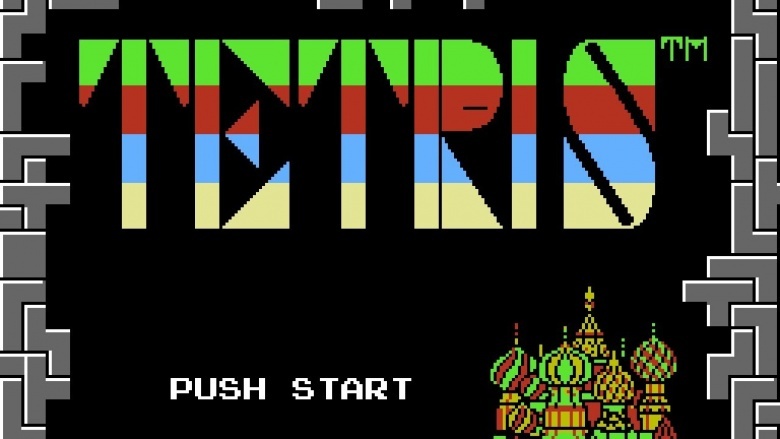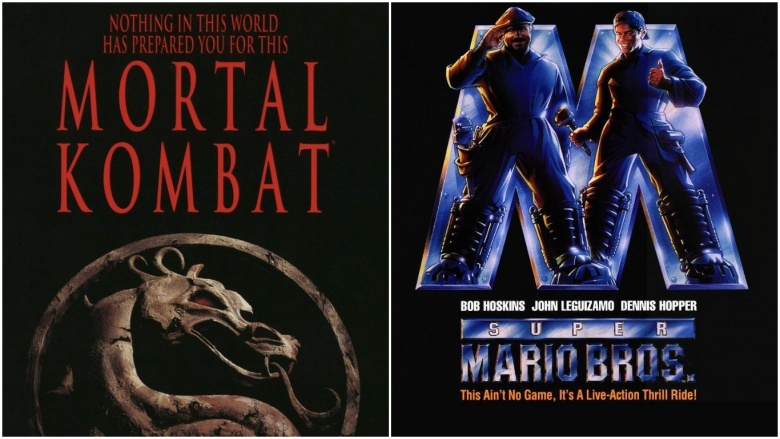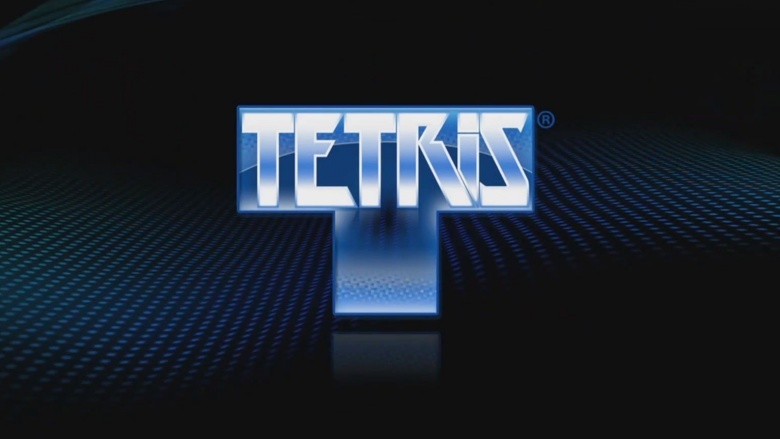Producer Lawrence Kasanoff Reveals Why You Want A Tetris Movie, Not What It's About
When word got out that the world will soon be graced with a Tetris movie, the general reaction seemed to fall along the lines of "How can anyone make a movie out of Tetris? What would a Tetris movie even be about?" and "Why would anyone want to make a movie out of Tetris?"
Lawrence Kasanoff, one of the film's producers, knows the answers to all of these questions, but he isn't ready to give them all away. As to the "why" of a Tetris movie, however, he's actually got a lot to say—and when Looper hopped on the phone to quiz him about the upcoming production, he was happy to share.
"Are we making a movie with a bunch of blocks running around? No."
Looper: Well, it's probably not going to surprise you that I have the same first question that pretty much everyone else has had: why a film version of Tetris?
Lawrence Kasanoff: "What the hell are you doing?" [Laughs] So first of all, I've got to say, we could not be more delighted with what's going on, because we are told by our publicist that this announcement alone is now at over 2 billion impressions worldwide, and that's not counting China and it's not counting Twitter or Facebook. And it's growing!
You know, whenever people say to me, "Oh, my God, how the hell are you going to do that, your career's going to be over," this is music to my ears. Because in most of my career, whenever people told me I could never do it, it would never happen, it was crazy—like with Mortal Kombat or Terminator 2 or the first feature-length Lego movie with Universal, before the Warner Brothers movie—I love it, because usually those are the ones that seem to do great. So the fact that everybody's saying this and writing about it and talking about it? That's exactly why we're doing it: because there's something worldwide that interests people about Tetris. And we believe it fulfills this endemic-in-everyone urge to create order out of chaos in the world around them, and that's why everybody is writing about it, that's why everybody's interested in it, and this only confirms that. And that's what the movie's about.
Now, are we making a movie with a bunch of blocks running around? No. And the fact that people think that, we find it hysterical...and sort of relieving, frankly, because it kind of sets the bar pretty low for me. All I have to do is not make a movie with blocks running around, and I'm already above everybody's expectations! [Laughs] So that's pretty good. But the reason is because everyone worldwide is interested in the fact that we're doing it because they're interested in Tetris, because they love Tetris, because—we believe—they want to create order out of chaos and Tetris enables them to do that.
"I love it when people say, 'How the hell are they going to do this?'"
I'm sure there's a certain percentage of the population who's just wondering, "How the hell are they going to do this, anyway?"
Yeah, but that's great, you know? Like I was saying, I've heard that kind of thing a lot, and I think it's great when people say things like that. It's when people say, "Yeah, that makes perfect sense, no problem, I think that'll go really well," that I go, "Uh, maybe I haven't thought this all the way through." But I love it when people say, "How the hell are they going to do this?" And the jokes people are making about it are funny. We just think it's terrific, because people are interested and engaged, tweeting and talking and writing about it...and that's worldwide, by the way. All over the world! It's great!
"Yeah, it was conceived as a trilogy. But, look, we've got to plan for tomorrow and live for today."
I don't know that you can say but so much about it, but the recurring description is that it's supposedly a sci-fi thriller.
Well, it's a sci-fi movie, yeah. It's a big sci-fi film.
And it's reportedly part of a trilogy?
Well, look, we didn't back into this. We didn't say, "We've got to figure this out." We did it because we thought there was an endemically good reason, we're doing it with our partners in China because there's a creative reason to do that, and so the story that we simply created is bigger than what can fit in one movie. None of these things are business decisions. They're all creative decisions. So, yeah, it was conceived as a trilogy. But, look, we've got to plan for tomorrow and live for today. So it was conceived that way, but we're going to spend the next couple of years making one movie, and then we'll go from there.
"What the world forgets is that when we made a movie out of Mortal Kombat, it was after Super Mario Brothers."
Given your history with Mortal Kombat, I'm sure there are some who suspect that this is just some elaborate bar bet: "Oh, sure, you can make a movie out of that video game, but let's see you make one out of this one!"
That's pretty funny, but what the world forgets is that when we made a movie out of Mortal Kombat, it was after Super Mario Brothers. I had just made True Lies, or we were in the middle of it, and everyone said, "What are you doing? Your career is going to be over! You can't make a movie out of a video game! It can't happen!" And now we've made 17 Mortal Kombat productions, we've got a bible that's I don't know how many hundreds of pages...and we started with an arcade game!
When we initially started Mortal Kombat, I was friends with the arcade company, because they did the T2 game, and it was the most successful arcade game ever. And a few years later they said to me just in conversation, "You know, we have a game that's doing so well that it might break your record." And I was in Chicago, and I said, "Well, we can't have that. I have to come play it!" And the second I played it, I said, "This is Star Wars versus Enter the Dragon," and I turned to the then-chairman of the company, and I said, "I want to make a movie out of this." And he said, "Are you crazy? This is an arcade game! You're nuts!" It wasn't just the press, my friends, and other people in the business: even the chairman of the company was saying, "You can't do this! It's not going to happen!" So I'm very used to this.
In all seriousness, I think you want to do something surprising and delightful. I mean, everyone else is making movies that are so boring and predictable these days, so you want to do something that's different and unusual and hopefully does surprise and delight people. So it wasn't an idea that came out of "if you can make one out of that arcade game, then you can make one out of this." That wasn't how it started. It was just that Tetris is so fascinating. Obviously you look for worldwide trends. There's a lot of things hiding in plain sight, a ton of creative stuff. There's a movie we're developing that we haven't announced yet, so I can't talk about it, but it's shocking to me that no one has done anything with it. You look at Tetris, you look at its figures, you look at how many countries it's in, and then you look at what's going on with us right now, and you think, "We're onto something here!"
That's what you want to do: you want to find things hiding in plain sight that are wildly popular before everyone realizes that this popularity can transfer to more than just a game. Because whenever you make something from something else—a movie from a book, a movie from a comic book, a movie from a game—you're not literally making it from that thing. If you're doing it right, you're figuring out the essence of the media, you're figuring out why it works, and then you're taking that essence and putting it into the next medium. If you get the essence right and you can distill it right and use it right, then you've got something. So that's what we're doing. And that's what we try to do any time we try to adapt something.
"This isn't something where they gave us the rights and then we invite them to the premiere."
So does Alexey Pajitnov, the original designer and programmer of Tetris, have anything to do with the film at all?
Absolutely! The Tetris people are our partners.
In what capacity? If you can speak to that. Is he helping with the development of it?
Well, I mean, we're all involved in it. I would feel better if you asked the Tetris people any specific questions. They can talk about how much they're involved and what they're doing. But, yes, they're all very, very, very, very involved. We're all partners. We all do this together. This isn't something where they gave us the rights and then we invite them to the premiere. We talk every day, we work with them together every step of the way, this is a partnership between me, Bruno Wu, and the Tetris people. And they're great. And we wouldn't have it any other way, because they've been doing this for 32 years! They know their game, they know why it works, they know their audience. So it's not just Alexey. It's Alexey and Hank and Mya and Lisa...There's a whole group of Tetris people who are wonderful. They're just collaborative and wonderful and smart. You have to have that in this sort of collaboration, or you're going to wind up in trouble.
"If you really want to play in the kind of movies that we produce, you've got to be in the world market."
As you said, this is a collaboration between US and Chinese production companies. I'm sure you haven't gotten anywhere near the point of casting yet...
Well, I wouldn't say that! [Laughs]
Well, fair enough. Apparently those discussions have started, then.
Yeah! But I interrupted you. What were you going to ask?
What goes into developing a project that's going to be "a global film for a global market," as the phrase goes?
Well, listen, you have to look at what's going on in the world. An American movie of this scope 10 years ago did 70 percent of its business in the United States. Today, a movie like this would do 25 to 30 percent of its business in the United States. But the absolute numbers are higher, so it's not like the US market is shrinking. It's growing! The world market is growing, so if you really want to play in the kind of movies that we produce, you've got to be in the world market, because that's where it's all going...and that's exciting as hell! The fact that there are several hundred million young, enthusiastic Chinese viewers on the scene that didn't exist a very short time ago...that's amazing. Imagine if somebody said, "Hey, we've got another 200 million people who are going to start reading Looper! Isn't that great?" It's the same thing! So once you say that, you look for projects that just naturally fit that. You look for things that have a world appeal. And Tetris has a world appeal.
I think human nature is the same everywhere in the world. People have cultural differences and food differences, but the bottom-line human nature, I think, is the same worldwide, and I don't think it's changed in 10,000 years. So you look for things that appeal to that, and order out of chaos, we feel, is one. So it's not as hard as it sounds, because once you understand what the story is, it's natural to the story, and it makes sense. We'd be shooting a part of this movie in China even if the Chinese economic renaissance had never occurred. And you'll understand why when you understand the story. So that's how you do it: you basically say to yourself, "Would I do this if there was not a business reason to do it?" And if the answer is "yes," you say, "Great! And do I have a business reason to do it?" And if the answer is "yes," then you say, "Fantastic!" But you've got to have both. We'd never do it if there wasn't a creative reason to do it.
"We don't really like saying, 'Hey, we've got an idea!' We only like doing it when it's real."
So getting back to that casting remark...
You know, it's funny to me when people say, "Well, they've been trying to develop this movie for the past year..." No, we haven't been trying. We did! We developed this movie, we raised $80 million...It's not like it's just that when we happened to say something about it, that's the only day we worked on it. We've been working on it every day, on all aspects of it. There are some very unusual visual effects in this movie, and we've been testing them and working on them for a year. Like everything, a movie takes time, and when the audience sees it when it comes out, they should have no interest or care about how long it took or anything else. All they should care about is if they enjoy it. But we've been doing a great many things on the project, including casting. We have nothing to announce yet, and we don't want to, but we will eventually, and then you'll start understanding.
Do you have a timeline for when you're planning to roll out more details?
No. We don't have a timeline for when we're rolling out more details because we don't really think like that. We announced what we announced because we thought it was significant, because we were going to start talking to a lot of people about financing and distributing it, so people would've found out anyway. We're very closed-lipped about what we develop and what we do. We're developing a lot of stuff, and we're always doing things. We just never talk about it until something's happened. We don't really like saying, "Hey, we've got an idea!" We only like doing it when it's real. So we know our planned timeline for shooting, but when we're going to start announcing things... That's a good question! [Laughs.] And it's one I should probably have an answer for!
Well, maybe you at least have an answer for this one: you said that you've seen some funny jokes in reaction to the announcement that there was going to be a Tetris movie, but what's your favorite?
I like the trailer. I thought that was really pretty good! But, listen, we like them all. I think we're getting more tweets than Trump! [Laughs] But that means that people are writing about and being engaged. It doesn't even matter what they say. The fact that they're snarky or whatever...like I said, that's music to my ears, because that means I'm on the right track. And we're not telling people what we're doing, so of course they're going to react like that. We don't care. All we care is that they're talking about us.







